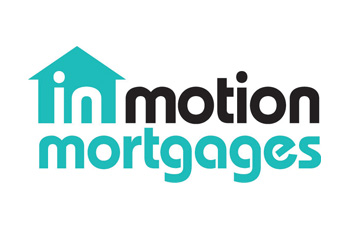Real-Life Case Studies Using Equity Release Mortgages
Real-Life Case Studies Using Equity Release Mortgages
Blog Article
Discovering the Various Types of Equity Release Mortgages Available Today
Equity Release home loans present numerous choices for property owners aged 55 and over. equity release mortgages. These financial products satisfy various requirements and preferences, enabling people to access funds from their home. From lifetime home mortgages to common gratitude home mortgages, each type offers distinct advantages. Recognizing these options is important for making educated choices. What elements should one take into consideration when selecting the most suitable equity Release strategy? The information that adhere to might clarify this important topic
Recognizing Equity Release Mortgages
Equity Release mortgages supply property owners, commonly those aged 55 and over, with a method to access the value connected up in their residential or commercial property without needing to sell it. This economic choice allows individuals to convert a part of their home equity right into cash, which can be used for numerous purposes, such as home improvements, repaying debts, or funding retirement.Equity Release can take various forms, yet it basically entails borrowing against the value of the home while retaining ownership. House owners can pick to obtain a round figure or a series of smaller sized payments, relying on their monetary demands and preferences.Additionally, the amount offered for Release is influenced by the home's value, the homeowner's age, and certain lender criteria. Overall, recognizing equity Release home loans is vital for house owners to make enlightened decisions about taking advantage of their home's equity while thinking about the lasting effects.
Lifetime Mortgages
Lifetime home loans represent among one of the most preferred forms of equity Release. This monetary product allows house owners, usually aged 55 or older, to borrow against the value of their residential property while keeping ownership. The financing, which is protected against the home, accrues rate of interest over time yet does not need regular monthly repayments. Instead, the funding and accrued passion are repaid when the house owner dies or moves into long-term care.Lifetime mortgages supply adaptability, as customers can pick to get a swelling amount or go with a drawdown center, accessing funds as required. Significantly, numerous plans included a no-negative-equity warranty, guaranteeing that borrowers will certainly never owe more than the worth of their home. This attribute provides satisfaction, enabling people to enjoy their retirement without the anxiety of depleting their estate. Overall, life time mortgages function as a viable alternative for those looking for financial backing in later life.
Home Reversion Program

Drawdown Life Time Mortgages
While numerous homeowners look for means to access their riches, drawdown lifetime home mortgages provide a flexible alternative that enables individuals to Release funds progressively. This sort of equity Release home mortgage makes it possible for home owners to obtain against the worth of their property while maintaining ownership. Unlike conventional lifetime mortgages, drawdown strategies enable debtors to access a part of their equity upfront and withdraw additional funds as needed, up to a predetermined limit.This feature can be particularly helpful for those who want to handle their financial resources very carefully, as it minimizes interest buildup by only charging interest on the quantities drawn. Furthermore, drawdown lifetime home loans typically come with a "no negative equity assurance," making certain that consumers will never owe more than their home's worth. This choice matches retirees who want monetary safety and versatility, permitting them to fulfill unanticipated expenses or keep their lifestyle without needing to offer their property.
Boosted Life Time Mortgages
Enhanced Life time Home mortgages offer distinct advantages for qualified home owners looking for to Release equity from their residential or commercial properties. Understanding the qualification requirements is vital, as it determines who can take advantage of these specialized car loans. It is also vital to examine the potential drawbacks linked with enhanced options, making certain an all-around viewpoint on their usage.
Eligibility Requirements Discussed
Recognizing the eligibility standards for Enhanced Life time Mortgages is vital for potential applicants looking for to access the equity in their homes. Commonly, applicants must be aged 55 or older, as this age demand is basic in the equity Release market. Homeowners should have a home valued at a minimal threshold, which can vary by lender. Importantly, the home should be their main residence and in great condition. Lenders typically analyze the home owner's wellness condition, as particular health conditions might improve qualification and benefits. Furthermore, candidates should not have existing considerable debts secured against the residential or commercial property. Meeting these criteria permits people to explore Improved Life time Home mortgages as a viable alternative for accessing funds bound in their homes.
Advantages of Enhanced Home Loans
After clearing up the qualification requirements, it becomes noticeable that Improved Life time Home mortgages offer numerous substantial benefits for home owners wanting to take advantage of their residential property equity. Mostly, they supply accessibility to a larger lending quantity compared to typical life time home mortgages, profiting those with health problems or age-related aspects that enhance their life span threat. This improved borrowing ability enables home owners to fulfill various economic demands, such as home renovations or retired life expenditures. In addition, these home loans generally include versatile payment alternatives, enabling customers to handle their finances extra successfully. The no-negative-equity warranty further assures that you could check here home owners will certainly never owe even more than their residential property's value, supplying tranquility of mind. In General, Enhanced Lifetime Home mortgages present an engaging option for eligible property owners seeking economic remedies.
Possible Downsides Taken Into Consideration
While Boosted Life time Home loans offer numerous benefits, prospective drawbacks require mindful consideration. One substantial worry is the effect on inheritance; the equity released decreases the worth of the estate entrusted to recipients. Furthermore, these home loans can accrue significant interest over time, resulting in a considerable debt that recommended you read may go beyond the original funding quantity. There may also be constraints on home adjustments or rental, restricting house owners' versatility. Improved items usually call for details health and wellness problems, suggesting not all homeowners will certify. Ultimately, handling the costs and fees connected with these home mortgages can be complicated, possibly causing unforeseen costs. Therefore, people should extensively assess their circumstance and speak with economic advisors prior to proceeding.
Shared Recognition Home Mortgages
Shared Gratitude Home mortgages represent a special monetary arrangement that permits home owners to access equity while sharing future home value boosts with the lending institution. This approach uses possible advantages such as minimized month-to-month payments, but it likewise includes disadvantages that should be meticulously thought about. Recognizing the eligibility needs is essential for those curious about this alternative.
Principle Summary
Equity Release mortgages, specifically in the kind of shared appreciation home mortgages, offer home owners a special economic solution that enables them to gain access to funds by leveraging the worth of their building. In this setup, a loan provider gives a finance to the property owner, which is typically paid off with a share of the property's future admiration in value. This indicates that when the homeowner offers the home or passes away, the loan provider receives a percentage of the raised worth, as opposed to simply the first financing amount. Shared recognition home mortgages can be appealing for those wanting to supplement their earnings or money considerable expenditures while keeping ownership of their home. Nonetheless, the financial effects of common admiration have to be very carefully considered by prospective debtors.
Benefits and Downsides
Although shared admiration home mortgages can offer considerable financial advantages, they likewise feature notable disadvantages that prospective borrowers ought to think about. These home mortgages allow home owners to access equity in their homes while sharing a portion of any future appreciation with the lending institution. This arrangement can be helpful during times of rising building worths, offering substantial funds without month-to-month settlements. The major downside is the potential loss of equity; property owners might finish up with appreciably lowered inheritance for successors. Furthermore, the intricacy of the terms can bring More hints about misconceptions concerning payment responsibilities and the percentage of gratitude owed. For that reason, it is necessary for customers to consider these elements thoroughly prior to dedicating to a common admiration mortgage.
Qualification Needs
What criteria must house owners fulfill to certify for a common admiration home loan? Mainly, candidates need to go to the very least 55 years old, ensuring they are within the target group for equity Release items. Additionally, the residential property needs to be their main residence and normally valued above a specified minimum threshold, often around ? 100,000. Lenders also evaluate the homeowner's monetary scenarios, including income and arrearages, to establish they can take care of the home loan sensibly. Notably, the residential or commercial property needs to be in excellent condition and free from substantial legal encumbrances. Home owners ought to also have a clear understanding of the terms, consisting of how admiration will certainly be shared with the lending institution upon sale or transfer of the home, as this impacts total returns.
Picking the Right Equity Release Choice

Often Asked Concerns
What Age Do I Required to Be for Equity Release?
The age requirement for equity Release normally starts at 55 for the majority of strategies. However, some service providers may use choices for those aged 60 and above, showing varying terms based on private scenarios and lender plans.
Will Equity Release Influence My Inheritance?
Equity Release can influence inheritance, as the quantity borrowed plus rate of interest minimizes the estate's worth. Beneficiaries might obtain less than anticipated, depending on the building's gratitude and the overall financial debt at the time of passing.
Can I Relocate Home With Equity Release?
The concern of moving residence with equity Release arises often. Typically, people can move their equity Release strategy to a new building, yet certain terms may apply, calling for examination with the lending institution for support.
Exist Costs Connected With Equity Release Mortgages?
Fees related to equity Release home loans can include plan costs, appraisal costs, and lawful prices. Additionally, there may be early payment fees, which can affect the overall price and monetary ramifications for the debtor.
Exactly How Does Equity Release Impact My Tax Obligation Circumstance?
Equity Release can impact one's tax obligation situation by potentially raising taxed income, as released funds are thought about resources. Nevertheless, it normally does not incur prompt tax obligation responsibilities, making it important to seek advice from a financial advisor for tailored support.
Conclusion
In recap, the variety of equity Release home loans available today offers house owners aged 55 and over numerous pathways to access their home's worth - equity release mortgages. Whether choosing for a life time home loan, home reversion plan, or other choices, each option provides distinct advantages tailored to private economic needs. Careful factor to consider and consultation with an economic advisor are important to assure the chosen equity Release option aligns with monetary situations and individual goals, inevitably promoting educated decision-making for a safe monetary future. Equity Release home loans present different options for property owners aged 55 and over. Equity Release mortgages provide homeowners, generally those aged 55 and over, with a method to access the value linked up in their property without requiring to sell it. Improved Lifetime Mortgages use distinctive advantages for qualified house owners seeking to Release equity from their homes. Equity Release home loans, especially in the type of shared gratitude home mortgages, supply home owners an unique financial remedy that permits them to gain access to funds by leveraging the value of their home. In summary, the selection of equity Release mortgages offered today offers house owners aged 55 and over several paths to access their home's value
Report this page